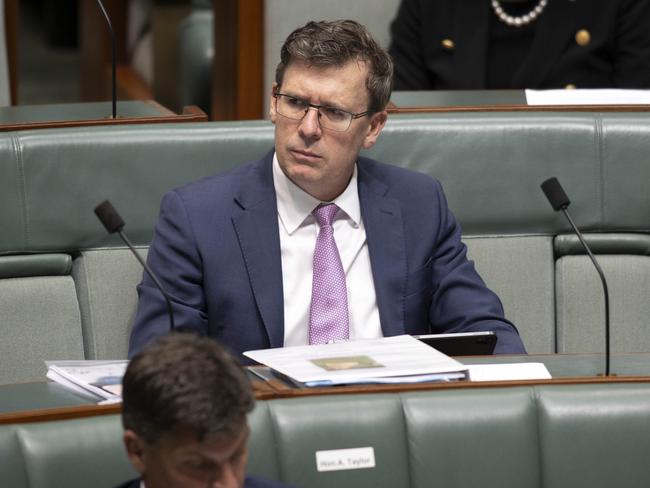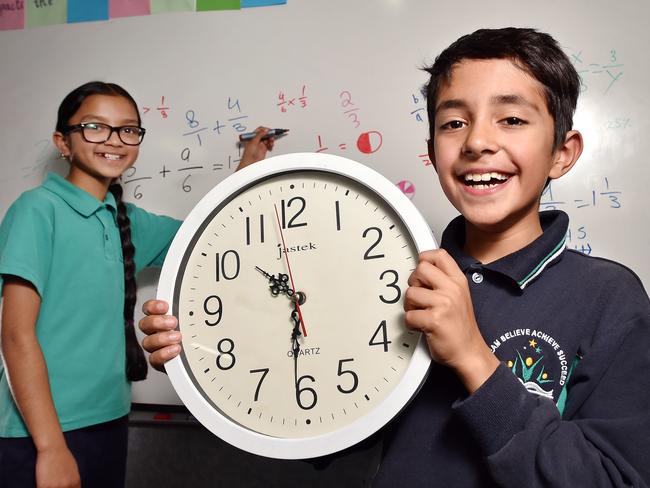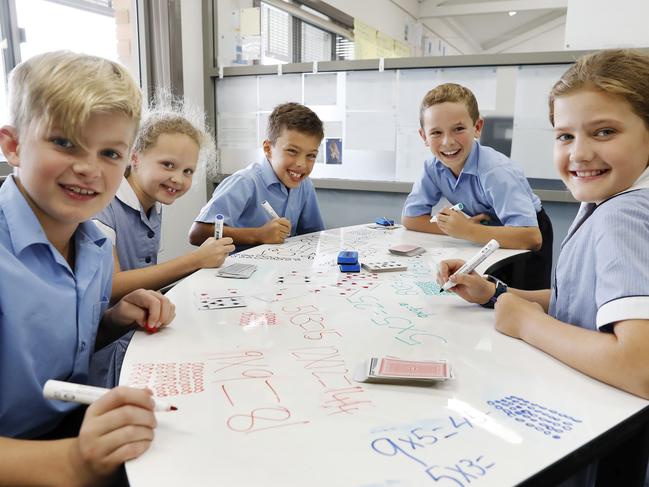Australian ‘invasion’ school history lessons slammed as curriculum changes planned
Australia’s Education Minister has criticised the way students are being taught history ahead of new curriculum changes.
National
Don't miss out on the headlines from National. Followed categories will be added to My News.
Activist history lessons about Australia’s “invasion’’ by British settlers have been criticised by federal Education Minister Alan Tudge.
“I don’t want students to be turned into activists,’’ Mr Tudge told Sky News.
“I want them to be taught the facts.’’
The new national curriculum, released for public comment this week, uses the term “invasion’’ to teach about European settlement.
History students will analyse “the impact of invasion, colonisation and dispossession of lands by Europeans on the First Nations Peoples of Australia such as frontier warfare, genocide, removal from land, relocation to ‘protectorates’, reserves and missions’’.
They will be taught how the “impacts of colonisation are viewed as invasion from the perspective of many First Nations Australians’’.
History students will also learn about “different points of view’’ on some commemorations and celebrations – singling out Australia Day and Christmas.
“Some First Nations Australians regard ‘Australia Day’ as ‘Invasion Day’ and many non-Christians celebrate Christmas for reasons not about practising their faith,’’ the curriculum material states.

Mr Tudge said he would seek “some changes’’ in the slimmed-down curriculum, which will delay teaching children to tell the time or learn their times tables.
He said students should learn about Australia’s settlement from the point of view of Aboriginal and Torres Strait Islanders, who are described in the new curriculum as “First Nations Australians’’.
“Certainly some people from an indigenous perspective saw things very differently to what the settlers saw it from and that should be taught as well,’’ he said.
But Mr Tudge said he was “certainly concerned’’ that indigenous history was not being balanced with Western culture in the new curriculum.
“I think we should honour our Indigenous history and teach that well,’’ he said.
“Equally, that should not come at the expense of dishonouring our Western heritage, which made us the liberal democracy that we are today.
“We have to get the balance right and I’m concerned that we haven’t in the draft (curriculum) that’s been put out.’’
Mr Tudge said he was “perplexed’’ that the new curriculum, to start next year, will delay teaching children to tell the time until Year 2 and postpone rote learning of multiplication in maths.

He said his own son was in prep and had already learned to tell the time.
“I see that the teaching of the times table is proposed to be delayed to Grade 4 rather than Grade 3, which perplexes me,’’ he told Australia Today.
But Australian Curriculum, Assessment and Reporting Authority (ACARA) chief executive David de Carvalho said students need an extra year to understand how multiplication works before “reciting the times table parrot-like’’.
“We want students to not only know their times tables and formulas but also to understand multiplication facts and be able to use and apply them to solve problems in the real world, not just reciting the times tables parrot-like without necessarily understanding,’’ he said.
Centre for Independent Studies research fellow in education policy, Glenn Fahey, said it was “crystal clear’’ that rote learning is important for multiplication and spelling.
“Some educators have got a resistance to these techniques because they feel it can be boring for students,’’ he said.
“But this material is necessary as a foundation for some of the interesting inquiry-based topics.’’
The slimmed-down curriculum says children should know and write the alphabet by the end of prep or kindy – the year before Grade 1 – and gives more details about teaching children to read through phonics.
Mr Tudge called for an end to “education fads’’ in the classroom, singling out the “whole language’’ of teaching kids to read by remembering words, rather than sounding them out through phonics.
“Finally, this is coming back to have some common sense again in terms of … kids learning to read by decoding the alphabet,’’ he said.
“We’ve had this child-centred learning movement occur, which has no evidence base, rather than explicit teaching – the teacher actually teaching the kids what to do.’’
Mr Tudge said some teachers had never been taught how to teach phonics, “which is just an indictment of the teacher education faculties, frankly’’.
SHOCK CHANGES EXPLAINED
Year 1 students will no longer be taught to tell the time on a clock with hands, or to use fractions – waiting until Year 2 when they are “more conceptually ready’’ at the age of six or seven.
Students learning a foreign language will focus more on speaking and writing, instead of analysing cultural differences in English.
Kids in physical education lessons will spend more time playing games and sport, with less classroom theory.
But they will be taught about respectful relationships, including laws relating to abuse, consent and sexting – with kindy kids taught to ask and share.
Naming and ordering the seasons has been taken out of Year 2 maths, as it is “not essential mathematical content’’ and is already taught in Year 1 science.
Rote learning of the times tables – otherwise known as “multiplication facts’’ – for the easier numbers of 2, 5 and 10 will be moved from Year 3 to Year 4, when multiplication of other numbers is now taught.

The curriculum change states that Year 3 students “are developing their understanding of multiplication through computational thinking approaches and modelling, groups and arrays rather than rote learning facts’’.
But other key maths concepts will be taught earlier – percentages in Year 5 instead of year 6, with pi for measuring circles taught in Year 7 instead of Year 8, and Pythagoras theory taught in Year 8 rather than Year 9.
Australian Association of Mathematics Teachers chief executive Allan Dougan said rote learning of the times tables was important for children in “early to mid primary school’’.
“Understanding things like times tables combined with automaticity make for really successful and sustainable learning outcomes for young people,’’ he said.
ACARA’s director of curriculum, Janet Davy, said teachers and principals had found the existing curriculum “unwieldy and difficult to navigate’’.
“Giving them more time to teach essential content in a more in-depth matter is important,’’ she said.
“We do not want to have teachers to have to spend excessive time interpreting the curriculum.’’
The review focuses on maths and science – subjects in which Australian students tanked in recent global tests – and was ordered by former Education Minister Dan Tehan, who vowed to “take a chainsaw to the curriculum’’.
Little change has been made to the English curriculum, although it will be stripped of lessons on using software such as Word or PowerPoint.
Software will be taught in digital technology lessons instead, where students will learn more about cyber-safety and privacy.
Primary school students will study fewer topics in social studies as it was considered “too broad with too many areas for teachers to focus on’’.
All high school students will learn about systems of government, Aboriginal history, migration to Australia, and both World Wars – but four other topics will be stripped from the curriculum.
Three topics that must now be seeded into all subjects – Aboriginal and Torres Strait Islander culture, Australia’s ties with Asia and sustainability – will now be confined to the most suitable subjects, with a focus on Aboriginal studies in social sciences, ties with Asia in history or commerce, and sustainability in science.
More Coverage
Originally published as Australian ‘invasion’ school history lessons slammed as curriculum changes planned





